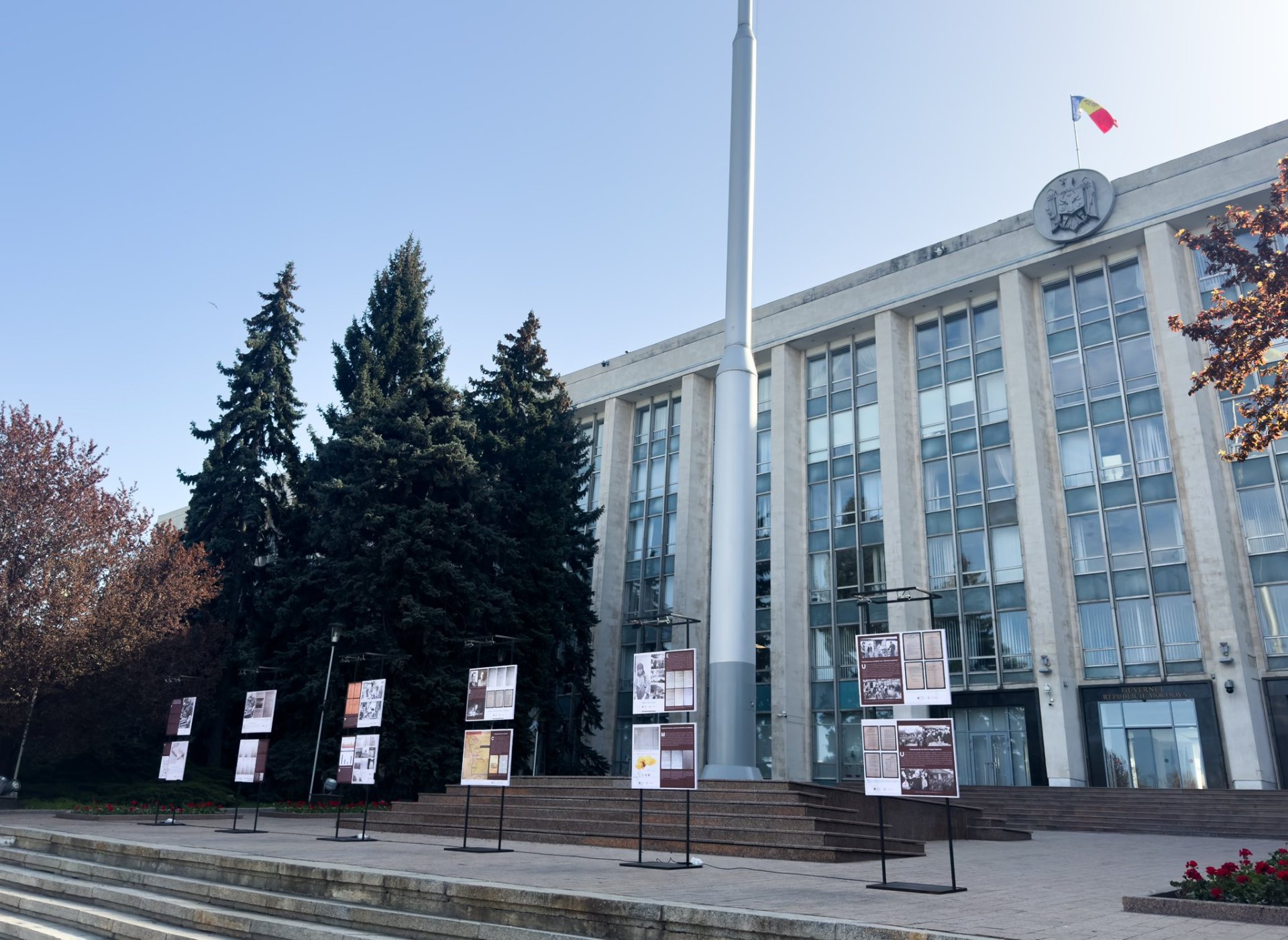
Commemorative exhibition on 1946–1947 Famine opened outside Moldovan government's building
A commemorative exhibition on the 1946–1947 famine has been inaugurated outside the government building. It is also available online as an educational and reflective resource.
The exhibition shows the causes, scale and consequences of the famine caused by the Soviet regime. The event is organized in partnership with the National Archives Agency.
At the same time, during April 29- 6, 2025, the Ministry of Education and Research has instructed the organization of a Famine Commemoration Week in all general, vocational, and higher education institutions.
Also, the Ministry of Culture has developed a special programme at the country's cultural institutions, including museums and theaters.
Specifically, the National Museum of Romanian Literature, supported by the Ministry of Culture, is organizing a string of cultural and educational events—public readings, testimonies, debates, alongside writer Larisa Turea, author of the Famine Book, and local historians.
The National Museum of Ethnography and Natural History is conducting topic-related exhibitions in Ivancea (Orhei), Edinet, and Falesti, in order to make sure that the lessons of the past reach all generations.
Local authorities nationwide will mark this tragic chapter in the country’s history through activities organized locally, involving communities from Moldova's villages and cities.
‘’Memory doesn't die. History can't be erased. Today, we pay tribute to those who died of hunger and to those who survived with dignity. Their story is also our story,’’ said the government's spokesperson, Daniel Voda.
On the third Saturday of April, the victims of one of the most tragic pages in the history of Moldova’s nation—the organized famine of 1946-1947—are commemorated. According to the National Archives Agency, it was one of the largest humanitarian catastrophes which hit the current territory of the Republic of Moldova in the 20th century. It was not an unavoidable natural disaster, but a tragedy worsened by the authoritarian and repressive policies of the Soviet regime. According to data provided by the National Archives Agency, more than 123,000 people died of hunger in just a few months, accounting for about 5 per cent of the population of the Moldovan Soviet Socialist Republic. Proportionally, Soviet Moldova was the worst hit region in the entire Soviet Union, with a death rate ten times higher than in Russia and five times higher than in Ukraine.
DOC// Families of Moldovan diplomats detached to the Netherlands to be able to work
VIDEO // Moldovan government approves new regulation on procedure for acquiring, losing Moldova's citizenship
MOLDPRES photojournalist awarded honorary title Merited Person
Moldova's Public Services Agency wins at Court of Appeal in passport blanks' purchase case: state exempted from payments worth over 100 million lei
Dumitru Obada re-elected as president of Moldova's Superior Council of Prosecutors
PHOTO GALLERY // 2025 Olympiad Gala
Funding of forensic expertise ordered in criminal and contraventional cases to be covered by budgets of public forensic institutions
Anti-corruption prosecutor of Moldova passes external evaluation
PHOTO // New driving license model to be issued in Moldova
EcoContact sets up guide containing behavior rules in protected natural areas of Moldova
Moldova accelerates fight against corruption and for justice reform: statements by Moldovan PM
TOP 5 achievements in education in Moldova: free meals in schools, record number of young specialists employed in education
Anti-corruption prosecutors Vitalie Ivanov and Victor Cazacu heard as part of integrity assessment
Human rights integrated into medical training at Nicolae Testemitanu Medical University of Moldova
ANI discovered unjustified assets of nearly 3 million lei for two officials
Heavy traffic at Moldova border during Christmas: Over 53,000 crossings
BTA: New Construction Chamber Chair Kachamakov Pledges Fight Against Shadow Economy, Focus on Workforce and Youth Engagement
Top 5 environmental issues in 2025 and solutions
PHOTO // Government Program DOR de traditii: 40 diaspora children discover national culture and winter holiday traditions
VIDEO // Speaker's message to citizens
VIDEO // Christmas message from US Embassy: Faith, family, freedom unite us
VIDEO // President congratulates citizens on New-Style Christmas Eve
VIDEO // EU Ambassador's holiday message
Ad-hoc committee decided to propose dismissal of disciplinary proceedings initiated against former Acting Prosecutor General
BTA: First Bulgarian Geodesist to Set Foot on Antarctica Worked on Research Laboratory at Bulgaria’s Livingston Island Base
PHOTO // Carolers of Moldova brought holiday traditions and joy to Parliament
VIDEO // Celebration on capital's streets
PHOTO // Eugen Doga International Airport from Chisinau reaches 6 million passengers in 2025, historic record
Republic of Moldova - among fastest growing tourist destinations in Europe
INTERVIEW MOLDPRES // Moldovan agriculture and food industry minister says European integration fundamentally changes way leadership supports agriculture

